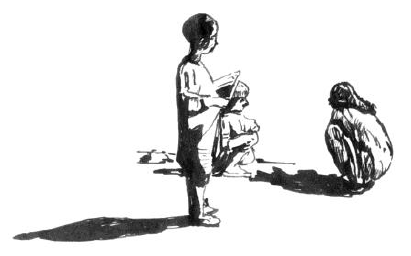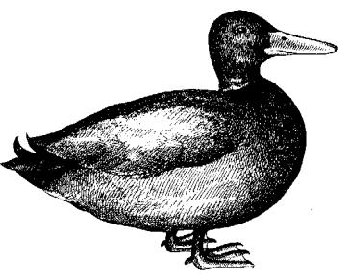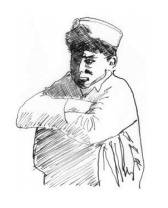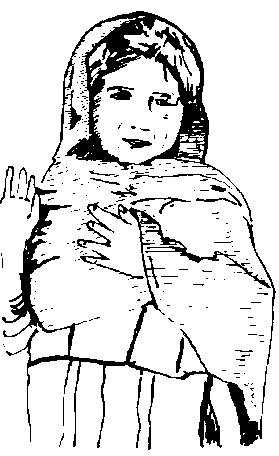Lesson Twenty-Two

Dialogue twenty-two: Friendship
L: nun zu du dostaané mUtaaliq khabure zda kawum. Today I am learning to talk about friendship. | نن زۀ د دوستانې مُتعلق خبرې زده کوم. |
H: Dera kha khabura da. That's very good news. | ډېره ښه خبره ده. |
L: staa dostáan tsok dee? Who are your friends? | ستا دوستان څوک دى؟ |
H: zmaa dostáan zmaa humzólee dee. My friends are my peers. | زما دوستان زما همزولى دى. |
L: staa dostaan tsomra khu dee? How good are your friends? | ستا دوستان څومره ښۀ دى؟ |
H: zmaa kho Der khu dostáan dee. My friends are very good. | زما خو ډېر ښۀ دوستان دى. |
L: du dostaané matlab tsu day? What is the meaning of friendship? | د دوستانې مطلب څۀ دے؟ |
H: yo bul sara khUlóos, wafáa aw khegúRa da. Devotion to one another, faithfulness and help. | يو بل سره خلُوص، وفا او ښېګړه ده. |
L: du dostaane tsu Usóol dee? What are the principles of friendship? | د دوستانې څۀ اصُول دى؟ |
H: che du dost du ihsaasáato khyaal saatee. To care for a friend's feelings. | چې د دوست د احساساتو خيال ساتى. |
L: ku staa dost staa na khufa shee, tu ba tsu kawe? If your friend is angry with you, what will you do? | کۀ ستا دوست ستا نه خفه شى تۀ به څۀ کوې؟ |
H: zu ba ye razáa kawum. I would reconcile with him (lit. 'reconcile him'). | زۀ به يې رضا کوم. |
Rhythm and stress
👆 Mimic your helper reading this poem until you sound similar. Pukhto is a musical language with a strong emphasis on rhyme and rhythm. Try to get a feel of these new patterns.
بطحه - báta (duck)

NOTE:
There are strong regional differences in the way in which بطحه - bata (duck) is spelt. بته and بطخه.
'was doing’: The past progressive tense
The past progressive tense is formed from the past endings added to the infinitive.
Study these examples:
| Infinitive | Past progressive | |
|---|---|---|
I was going. | raatlúl راتلل | zu raatlúm زۀ راتلم. |
He was dying. | muR kedúl مړ کېدل | haghá muR kedó هغه مړ کېدو. |
They were sleeping. | oodu kedúl اُودۀ کېدل | haghwee oodú kedúl هغوى اُودۀ کېدل |
Were you walking? | gurzedúl ګرځېدل | taaso gurzedéy? تاسو ګرځېدئ؟ |
He was sleeping. | oodu kedul اُودۀ کېدل | haghá oodú kedú هغه اُودۀ کېدهٔ. |
NOTE:
As with the simple past, you can either drop or keep the ل - ul on the end. Often the ل - ul is dropped in everyday speech.

Intransitive verbs in the past progressive
| zmoong loor du khop na paatsedá kala che or óolugedo. | Our daughter was waking up when the fire started. | زمُونږ لُور د خوب نه پاڅېده کله چې اور ولګېدو. |
| zmaa khuza oodú kedá kala che Telefon ráaghay. | My wife was going to sleep when the telephone rang. | زما ښځه اُودۀ کېده کله چې ټېلېفون راغے. |
| haghá muR kedó kala che DakTur raaghay. | He was dying when the doctor came. | هغۀ مړ کېدو کله چې ډاکټر راغے. |
| baaráan shUróo kedó kala che dăftur ta óorasedum. | It was starting to rain when I reached the office. | باران شروع کېدو کله چې دفتر ته ورسېدم. |
| paróon zmaa khpe khogede. | Yesterday my feet were hurting. (f.pl.) | پرُون زما پښې خوږېدې. |
| zu hára wraz bemaaredúm. | I would get sick every day. | زۀ هره ورځ بېمارېدم. |
NOTE:
Using the sentences below as practice, contrast the simple past tense with the past progressive:
| hágha saRay muR sho. | That man died. | هغه سړے مړ شو. |
| hágha saRay muR kedó. | That man was dying. | هغه سړے مړ کېدو. |
| maashoomáan oodú shwul? | Did the children go to sleep? | ماشُومان اُودۀ شول؟ |
| maashoomaan oodu kedúl? | Were the children going to sleep? | ماشُومان اُودۀ کېدل؟ |
Intransitive compounds with کېدل - kedul in the past progressive
| staa moTúr du khaalee pu wraz sumedu [sumedo]. | Your car was being repaired on Saturday. | ستا موټر د خالى په ورځ سمېدهٔ [سمېدو]. |
| paróon zmaa kamrá rang keda. | Yesterday my room was getting painted. | پرُون زما کمره رنګ کېده. |
| DoDúy pakhedé kala che Talúy óowahule shwa. | The food was being cooked when the doorbell rang. | ډوډۍ پخېدې کله چې ټلۍ ووهلې شوه. |
More intransitive past progressive verbs
| taa sara tsok tlo? | Who was going with you? | تا سره څوک تلو؟ |
| shaahíd maas sara tlo. | Shahid was going with me. | شاهد ما سره تلو. |
| taaso kala gurzedéy? | When were you walking? | تاسو کله ګرځېدئ؟ |
| zu sahár aatú baje gurzedúm. | I was walking at eight o'clock in the morning. | زۀ سحر اتۀ بجې ګرځېدم. |
| tu chărta tle? | Where were you going? | تۀ چرته تلې؟ |
| zu baazáar ta tlum. | I was going to the market. | زۀ بازار ته تلم. |
| haghá du dăftur na raatlá. | She was coming from the office? | هغه د دفتر نه راتله. |
| na, haghá du baazáar na raatlá. | No, she was coming from the market. | نه، هغه د بازار نه راتله. |
| tsu wakht che khuze du hoTúl no raawatúle, no tsu chal oosho? | When the ladies were coming out of the hotel, what happened? | څۀ وخت چې ښځې د هوټل نه راوتلې، نو څۀ چل وشو؟ |
| tsu wakht che haghwée raawaté no waawra waredúl shUroo sho. | When they were coming out it started to snow. | څۀ وخت چې هغوى راوتې نو واؤره ورېدل شروع شو. |
| zu nun sahár pu saaykúl skool ta raatlúm, kala che ... | This morning I was going to school by cycle, when ... | زۀ نن سحر په سائيکل سکُول ته راتلم کله چې ... |
| tsu wakht che haghá da aas na ghorzedó no taa óoleedo? | When he was falling from the horse did you see him? | څۀ وخت چې هغه د اس نه غورزېدو نو تا وليدو؟ |
| aw, maa óoleedo. | Yes, I saw him. | آو، ما وليدو. |
| kala che zu pu pekhawúr ke osedúm, taa zu pejzandúm? | When I was living in Peshawar did you know me? | کله چې زۀ په پېښور کښې اوسېدم، تا زۀ پېژندم؟ |
| aw, maa tu pejzandé. | Yes, I knew (lit. 'was knowing') you. | آو، ما تۀ پېژندې. |
| che zu ráaghlum no tu prot we? | When I was coming were you lying down? | چې زۀ راغلم نو تۀ پروت وې؟ |
| na, zu du khob na patsedúm. | No, I was waking up from sleep. | نه، زۀ د خوب نه پاڅېدم. |
راتلل - raatlúl in the past progressive tense - “was coming”
| Person | Singular | Plural |
|---|---|---|
1st | raatlúm I was coming راتلم | raatlóo we were coming راتلو |
2nd | raatlé you were coming راتلې | raatléy you were coming راتلئ |
3rd m. | raatló he was coming راتلو | raatlúl they were coming راتلل |
3rd f. | raatlá she was coming راتله | raatlé they were coming راتلې |
Transitive verbs in the past progressive
As in the simple past, transitive verbs agree with the object. But whereas we used the perfective stem for the simple past, we use the infinitive for the past progressive.
The perfective stem is often made by adding a و - oo prefix. That prefix is not addded to the infinitive, and so we won’t use in with the past progressive. For example:
| táaso tsu kawúl? | What things were you doing? (m.pl.) | تاسو څهٔ کول؟ |
A great many sentences have past progressive followed by simple past:
| kala che haghú zmaa paTáy rebúlo maa pu Topák óoweeshto. | When he was reaping my field I shot him with the gun. | کله چې هغۀ زما پټے رېبلو ما په ټوپک وويشتو. |
| maa moTúr chalawó kala che zu ye óowahulum. | I was driving the car when he hit me. | ما موټر چلوو کله چې زۀ يې ووهلم. |
| maa pu jUmáat ke moonz kawulo che ghul zmaa tsaplúy púTe kRe. | I was praying in the mosque when a thief stole my sandals. | ما په جُماعت کښې مُونځ کولو کله چې غل زما څپلۍ پټې کړې. |
Finish the story
👆 Have your teacher say these sentences then use them to start a story in the simple past in any way you like.
| kala che maa khpe weenzúle ... | While I was washing my feet ... | کله چې ما پښې وينځلې ... |
| kala che maa kapRé ghwaRawúle ... | While I was spreading out the clothes ... | کله چې ما کپړې غوړولې ... |
| kala che haghé chaay skúle ... | While she was drinking tea ... | کله چې هغې چائې څښلې ... |
What were you doing when?
It is a useful skill to get people to talk and expand on what they are saying as they tell a story. A good question can trigger a whole conversation. Try some of these phrases when your friends are relating a past event:
| táaso tsu kawul? | What were you doing? | تاسو څۀ کول؟ |
| haghá kala zakhmee sho? | When was he wounded? | هغه کله زخمى شو؟ |
| haghá tsu wakht khabúra kRay shwa? | When was she informed? | هغه څۀ وخت خبره کړے شوه؟ |
| khpo la de tsu chal óosho? | What happened to your feet? | پښو له دې څۀ چل وشو؟ |
| taa reDyó aawredó? | Were you listening to the radio? | تا رېډيو اورېدو؟ |
| taa begáa sabúq waye? | Were you studying last night? | تا بېګا سبق وئیې؟ |
| taa paróon laambó wahúla? | Were you swimming yesterday? | تا پرُون لامبو وهله؟ |
| taa du shpe chúghe wahule? | Were you screaming in the night? | تا د شپې چغې وهلې؟ |
👆 Now get your helper to ask you questions about what you did yesterday.
Compound verbs in the past progressive
| staa khor tsu kawul? | What was your sister doing? | ستا خور څۀ کول؟ |
| zmaa khor DoDúy pakhawúla. | My sister was baking bread. (f.s.) | زما خور ډوډۍ پخوله. |
| hágho saRo tsu rang kawul? | What were those men dyeing? | هغه سړو څۀ رنګ کول؟ |
| haghwée zmaa jaame rang kawule. | They were dyeing my clothes. (f.pl.) | هغوى زما جامې رنګ کولې. |
| hágha saRee taa ta kunzul wăle kawul? | Why was that man cursing you? | هغه سړى تا ته کنځل ولې کول؟ |
| zuka che maa du haghú khra naagáa kuRe wa. | Because I was holding his donkey. | ځکه چې ما د هغۀ خره ناګا کړې وه. |
| che zu ráaghlum no tu oodú we? | When I came were you sleeping? | چې زۀ راغلم نو تۀ اُودۀ وې؟ |
| tsu chal óosho che taa kitáab we? | What happened as you were reading the book? | څۀ چل وشو چې تا کتاب وې؟ |
| kala che maa kitáab we no wror me ráaghay. | As I was studying, my brother came. | کله چې ما کتاب وې نو ورور مې راغے. |
| tsu wakht che me kabÚDee kawúla nu khpa me maata shwa. | When I was playing Kubudi then my leg [lit. foot] broke. | څۀ وخت چې مې کبډى کوله نو پښه مې ماته شوه. |
| tsu wakht che ghul ghlaa kawúla tsokeedáar chărta wo? | When the thief was robbing, where was the watchman? | څۀ وخت چې غل غلا کوله څوکيدار چرته وو؟ |
| haghú pu baazáar ke khoráak kawó | He was in the market eating food. | هغۀ په بازار کښې خوراک کوو. |
| taa du de na makhke pukhto wayúla? | Were you speaking in Pukhto before this? | تا د دې نه مخکښې پښتو وئيله؟ |
| na, moong pukhto nu wayúla. | No, we were not speaking Pukhto. | نه، مُونږ پښتو نۀ وئيله. |
NOTE:
In the past tense the verb وئیل / وائیل - wayul / waayul (to say, to read) is often shortened in colloquial speech. Although the full form of "I was reading a book" would be زهٔ کتاب وئیلو - zu kitáab wayúlo, people will often just use a quick زهٔ کتاب وې - zu kitáab we instead.
Contrasting simple and progressive past tenses
The difference between the simple past and the progressive past is simple
- progressive past: uses the infinitive
- simple past: uses the perfective root (which often includes a و - oo prefix)
| maa pu dăftúr ke kaar ookRo. | I worked in the office. | ما په دفتر کښې کار وکړو. |
| maa pu dăftúr ke kaar kawúlo. | I was working in an office. | ما په دفتر کښې کار کولو. |
| maashoomaano yuwa loba óokRa. | The children played a game. | ماشُومانو يوه لوبه وکړه. |
| maashoomaano yuwa loba kawúla. | The children were playing a game. | ماشُومانو يوه لوبه کوله. |
| taa pu pukhtó ke khabure óokRe? | Did you speak in Pukhto? | تا په پښتو کښې خبرې وکړې؟ |
| taa pu pukhto ke khabure kawúle? | Were you speaking in Pukhto? | تا په پښتو کښې خبرې کولې؟ |
When the verb کول - kawul (to make ...) is used in stative compounds with complements ending in a consonant the initial کـ - k- is often dropped and the verb is fused together with the complement in the infinitive.
| Complement | Aux. Verb | Infinitve |
|---|---|---|
joR made, well جوړ | kawúl to make کول | joRawul to make جوړول |
pokh cooked پوخ | kawúl to make کول | pakhawúl to cook پخول |
bayaan explanation بیان | kawul to make کول | bayaanawul to explain بیانول |
| maa yo mez joR kRo. | I built a desk. (m.s.) | ما يو مېز جوړ کړو. |
| maa yo mez joRawúlo. | I was building a desk. | ما يو مېز جوړولو. |
| taas largée ToTé kRul? | Did you chop the wood? (m.pl.) | تاسو لرګى ټوټې کړل؟ |
| taaso largée ToTé kawul? | Were you chopping the wood? | تاسو لرګى ټوټې کول؟ |
| haghé kamrá safáa kRa. | She cleaned the room. (f.s.) | هغې کمره صفا کړه. |
| haghé kamrá safáa kawula. | She was cleaning the room. | هغې کمره صفا کوله. |
| haghú kiRkúy bande kRe. | He closed the windows. (f.pl.) | هغۀ کړکۍ بندې کړې. |
| haghú kiRkúy bandawúle. | He was closing the windows. | هغۀ کړکۍ بندولې. |
How to practice this tense?
👆 Memorise a story of something dramatic that happened to you and tell it to your friends.
Tell it to your helper, and ask him or her to tell it back to you in the two past tenses we have met so far. Practice these versions with your helper – paying particular attention to the verb endings.
Prepositions showing location
- مخامخ - mukhaamúkh (facing, opposite)
| zmaa kor haspatáal ta mukhaamúkh day. | My house is opposite the hospital. | زما کور هسپتال ته مخامخ دے. |
| sineemáa du benk kootsé ta mukhaamúkh da. | The cinema is opposite to the street of the bank. | سنيما د بېنک کُوڅې ته مخامخ ده. |
- په خوا کښې - pu khwaa ke (next to, beside)
| zu du or pu khwaa ke kenum zuka che yukhnee me kégee. | I am sitting beside the fire because I am getting cold. | زۀ د اور په خوا کښې کښېنم ځکه چې يخنى مې کېږى. |
| du paspórT dăftur du afgháan hoTúl pu khwaa ke day. | The Passport Office is beside the Afghan restaurant. | د پاسپورټ دفتر د افغان هوټل په خوا کښې دے. |
NOTE:
Confusingly, the English loan word هوټل - hoTúl is mainly used in Pukhto to mean a place to eat, rather than to sleep and is equivalent to 'restaurant’.
- مخې ته - mukhe ta (in front of) and مخکښې - mukhke (in front of)
| maa paróon haghá du sabzúy du dookáan makhke óoleedo. | Yesterday I saw him in front of the grocery store. | ما پرُون هغه د سبزۍ د دُوکان مخکښې وليدو. |
| zmoong du kor mukhe ta yo waRóokay khwaR day. | In front of our house there is a small stream. | زمُونږ د کور مخې ته يو وړُوکے خوړ دے. |
- ساته - shaata (behind, at the back of, in back of)
| du jamróod saRúk zmoong du kor sháata terégee. | Jamrud road passes behind our house. | د جمرود سړک زمُونږ د کور شاته تېرېږى. |
| nun haghá zmaa shaata naast wo. | Today he was sitting behind me. | نن هغه زما شاته ناست وو. |
- جوښت - jokht (right next to, alongside)
| zmaa kor do bilór kor sara jokht day. | My house is next to Bilour's house. | زما کور د بلور کور سره جوښت دے. |
| pu moonz ke doomra jokht oodrégey che ooggé yo bul sara lúgee. | In prayer stand so close that your shoulders touch. | په مُونځ کښې دومره جوښت اودرېږئ چې اوږې يو بل سره لږى. |
- پې، پرې - pe, pre (thereon)
| pkha pe mu gda, zuka che gUnáah da. | Don't put your foot on it, as that's a sin. | پښه پې مهٔ ږده، ځکه چې ګُناه ده. |
| haghá pu kor ke naast wo aw chut pe raa-prewato. | He was sitting in the house and the roof fell on him. | هغه په کور کښې ناست وو او چت پې را پرېوتو. |
NOTE:
پې - pe is an abbreviated/colloquial form of پرې - pre
Comprehension drill: Laundry
| speene aw rangdaare kapRe bele key! | Separate the white and coloured clothes! | سپينې او رنګدارې کپړې بېلې کئ! |
| speene kapRé pu garmo oobo ke aw rangdaare pu yukho oobo ke wáachawa. | Put the white clothes in hot and the coloured in cold water. | سپينې کپړې په ګرمو اوبو کښې او رنګدارې په يخو اوبو کښې واچوه. |
| kho daa naRúy kapRe pu laasóono óoweenzey. | But wash these thin clothes by hand. | خو دا نرۍ کپړې په لاسونو ووينځئ. |
| byaa ye pu taar óoghwaRawey. | Later spread them on the line. | بيا يې په تار وغوړوئ. |
| che Úche shee, byaa ye raaghónDe kRey aw istrée ye kRey! | When they become dry, collect them and iron them! | چې وچې شى، بيا يې راغونډې کړئ او اِسترى يې کړئ! |
👆 Add at least five more commands that you have to use often.

Memorising moment
mataloona
NOTE:
پنج - panj means ‘five’, but here it is being used idiomatically to mean ‘claws’ پنجه - panjá. To give ‘five’ means to come against someone competitively.
Exercises for Lesson Twenty-Two
- Use the propositions: مخامخ - mukhaamúkh (facing, opposite); مخکښې - mákhke (in front); په خوا کښې - pu khwaa ke (beside); and شاته - sháata (behind) in the following sentences.
- Say the following sentences in the past progressive tense, and then finish the story.
a. As he was lying on the ground …
b. As they approached the mountain pass …
c. One day Ariq was hunting …
d. One day he was ploughing his field …
e. He was going to the village barber for a hair cut …
f. As she was returning to her village …
g. One day he was sitting under a shady tree …
- In the following sentences change the simple past tense verbs to the progressive past.